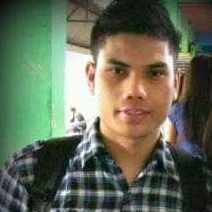

Ten years ago, news of the gruesome Maguindanao massacre broke out and shocked the world. It has been considered the worst election-related violence ever recorded in the Philippines and the single bloodiest attack on journalists in recent memory.
The morbid footage in news reports still haunt me to this day. I was a teenager then, and could not take the gravity of the crime. It was traumatizing, and I could not help but leave whenever I heard the topic being discussed, because it was just too hard to take in.
It was a humid December afternoon when my college professor, who was also a lawyer, discussed the topic during class. He expressed his disgust towards the grisly crime and how impunity engulfed the very fabric of our judicial system. He then turned to us and asked, “Who among you here has the guts to fight these evils?” The evils he was referring to were the Ampatuans, and the other political dynasties thriving in our corrupt system of governance. (READ: Political dynasties, impossibility of democracy)
Suddenly, crickets. Most of my classmates looked oblivious, while some could be heard chuckling. In their young minds, they could not really understand what he meant. But this particular moment hit me hard. That was when I promised to myself that I would serve this country and help those in need by working in the justice system in the future.
Years later, I find myself standing in the lonely hallways of law school. Years later, I am reading voluminous cases, enduring sleepless nights, injecting my veins with caffeine, and swallowing professors’ insults and cold calls. Every law student knows the agony and sacrifices required in studying law. But the question really is, “What is your reason for giving up your old life in exchange for these rigorous years in school?” (READ: Broke and broken: Working student recalls long journey to becoming a lawyer)
My answer is simple. My primary purpose is to aid in the administration of justice and make it available for all, irrespective of one’s disposition in life or his socio-economic status. The Ampatuan massacre has substantially driven me to pursue this endeavor. The victims’ grieving families and friends who plead for justice cannot, in any way, be ignored. I cannot endure seeing impunity prevail in the hands of a powerful few.
These past few days have been historic. The Ampatuan case finally reached its reckoning point. It was a very long decision composed of over 700 pages– understandably lengthy because of the decade-long trial and the nature of the case per se.
Just moments after the promulgation, I dared to peruse the legal justification of the judgment, including the statement of facts. However, I decided not to finish the entirety of the decision because of the horrendous testimonies of the witnesses, including detailed accounts from the time of the abduction to the actual execution of the victims. (READ: 'Tama na please': How lawyer's text in last moments convicted Andal Ampatuan)
The recent ruling of the court convicting some of the accused including the principal ones shows that the country still has a well-functioning judiciary. Albeit the case ended with more accused acquitted than convicted, this signals the gradual reinstatement of trust in the judiciary.
Finally, the trial court has now culminated the case with a favorable decision, a decision that may somehow change the course of our fate as a troubled nation. But however celebratory the outcome is, the public should not feign nonchalance. The road does not end here, as legal remedies for the convicts are still in place. We must keep an eye out.
Hats off to the brave prosecutors and lawyers who carried many burdens along the way, and to the woman of the hour, Judge Jocelyn Solis Reyes, for a decade of dedication and perseverance to make sure justice is served. These individuals inspire the next generation of legal warriors. This is just the beginning of our long but meaningful quest for truth and justice. The rainbow after the storm is now apparent.
I keep my faith in our justice system as I traverse the long and uncertain road to lawyering. Like some of my classmates, I am also struggling to survive the daily grind in school. As the law school mantra puts it, “The question of whether or not you would become a lawyer is a settled one. The only question is when?” Thus, I trust the process no matter what it will cost me – for God, for the country, and for the future. – Rappler.com
Leandro C. Tulod, 25, is a working law student from the Polytechnic University of the Philippines. He is in the process of transforming himself from a nobody to a somebody. He enjoys reading legal commentaries and loves to go on hikes when time permits.